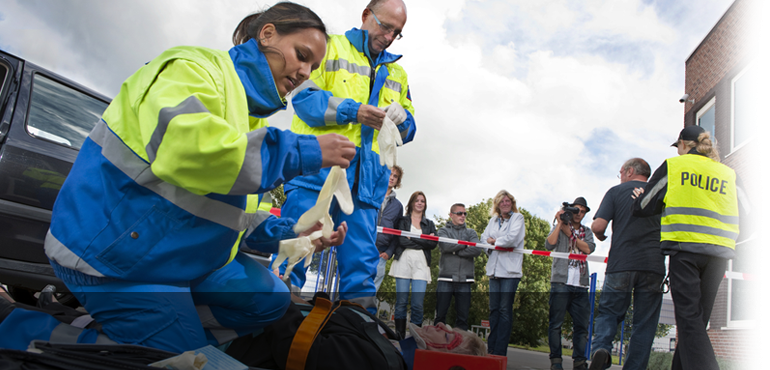| Toll Free : 1844 495 7333(injury hotline- new cases only) | |
| Text a Personal Injury Lawyer 24/7 and get instant help.TM (416 931 5015) | |
| Head Office : 905 495 7333 |
Cambridge Personal Injury Lawyer: Understanding the Trial Process
December 31, 2017If you have suffered a serious injury in a car accident, you and your family have probably gone through a devastating experience that involves physical, financial and emotional distress.
Accidents are usually caused by someone’s fault or negligence. The injured are entitled to seek compensation from the at-fault or negligent party to help them restore life to a close approximation of what it was before the accident.
In Ontario, all those injured in car accidents are entitled to receive no-fault benefits under the Statutory Accident Benefits Scheme (SABS). These benefits are payable by their own insurer and cover income loss and medical/rehabilitation expenses. However they don’t cover pain and suffering.
Victims can also sue the at-fault party in a civil action, by filing personal injury suit. This is done preferably with the assistance of an experienced Cambridge personal injury lawyer. You can claim all the above benefits, including pain and suffering.
Seeking Compensation
One of the biggest challenges in achieving the compensation you deserve lies in dealing with the response of insurance companies, even your own. We often forget that they are for-profit organizations with the primary focus being on protecting their own business interests.
They may deny or dispute your claim, deny it on technical grounds or delay settlement hoping to wait you out. Such delays can be hazardous because you could cross the statute of limitations period for filing a suit and thus lose the opportunity of launching a legal action against the at-fault party.
It’s vital to consult an experienced Cambridge personal injury lawyer with expertise and knowledge in handling such cases.
Nearly 90% of personal injury claims are settled out-of-court, through negotiations, mediation or arbitration. However, if the settlement offered is too meager or the insurance company/at-fault party fails to give an appropriate response, the case can be taken to trial. If the negotiations and discussions prove unfruitful, the only option is to settle the matter in court. That’s why it’s important to select a personal injury lawyer who has excellent negotiation skills but also has trial experience.
Steps In The Trial Process
- Obviously, meeting the right Cambridge personal injury lawyer is the first step in beginning the trial process. In some cases, the lawyer may already have handled your case at the negotiations/arbitration stage, so he/she would be familiar with all aspects of your claim. He/she will take the time and effort to explain each progressive stage of the trial process to you in detail.
- Legal papers have to be filed in the court. The Complaint, which provides an outline of the case against the at-fault party, identification of the parties involved, jurisdiction of the court, the complainant’s legal claim and the circumstances which led to the claim.
- Summons, service of process, answers, claims and counter-claims follow.
- The next stage is Examination of Discovery where both parties get information from each other to establish the facts of the case. Trial follows.
- The case may get resolved at any stage.
- The final settlement is based on the jury verdict. Finally, you can face delays in collecting your settlement amount, the other party may go on appeal.
Cambridge Personal Injury Lawyer: Understanding the Trial Process
December 31, 2017If you have suffered a serious injury in a car accident, you and your family have probably gone through a devastating experience that involves physical, financial and emotional distress.
Accidents are usually caused by someone’s fault or negligence. The injured are entitled to seek compensation from the at-fault or negligent party to help them restore life to a close approximation of what it was before the accident.
In Ontario, all those injured in car accidents are entitled to receive no-fault benefits under the Statutory Accident Benefits Scheme (SABS). These benefits are payable by their own insurer and cover income loss and medical/rehabilitation expenses. However they don’t cover pain and suffering.
Victims can also sue the at-fault party in a civil action, by filing personal injury suit. This is done preferably with the assistance of an experienced Cambridge personal injury lawyer. You can claim all the above benefits, including pain and suffering.
Seeking Compensation
One of the biggest challenges in achieving the compensation you deserve lies in dealing with the response of insurance companies, even your own. We often forget that they are for-profit organizations with the primary focus being on protecting their own business interests.
They may deny or dispute your claim, deny it on technical grounds or delay settlement hoping to wait you out. Such delays can be hazardous because you could cross the statute of limitations period for filing a suit and thus lose the opportunity of launching a legal action against the at-fault party.
It’s vital to consult an experienced Cambridge personal injury lawyer with expertise and knowledge in handling such cases.
Nearly 90% of personal injury claims are settled out-of-court, through negotiations, mediation or arbitration. However, if the settlement offered is too meager or the insurance company/at-fault party fails to give an appropriate response, the case can be taken to trial. If the negotiations and discussions prove unfruitful, the only option is to settle the matter in court. That’s why it’s important to select a personal injury lawyer who has excellent negotiation skills but also has trial experience.
Steps In The Trial Process
- Obviously, meeting the right Cambridge personal injury lawyer is the first step in beginning the trial process. In some cases, the lawyer may already have handled your case at the negotiations/arbitration stage, so he/she would be familiar with all aspects of your claim. He/she will take the time and effort to explain each progressive stage of the trial process to you in detail.
- Legal papers have to be filed in the court. The Complaint, which provides an outline of the case against the at-fault party, identification of the parties involved, jurisdiction of the court, the complainant’s legal claim and the circumstances which led to the claim.
- Summons, service of process, answers, claims and counter-claims follow.
- The next stage is Examination of Discovery where both parties get information from each other to establish the facts of the case. Trial follows.
- The case may get resolved at any stage.
- The final settlement is based on the jury verdict. Finally, you can face delays in collecting your settlement amount, the other party may go on appeal.








